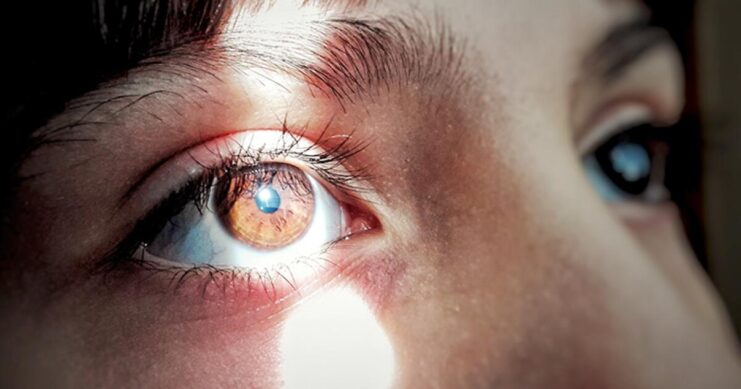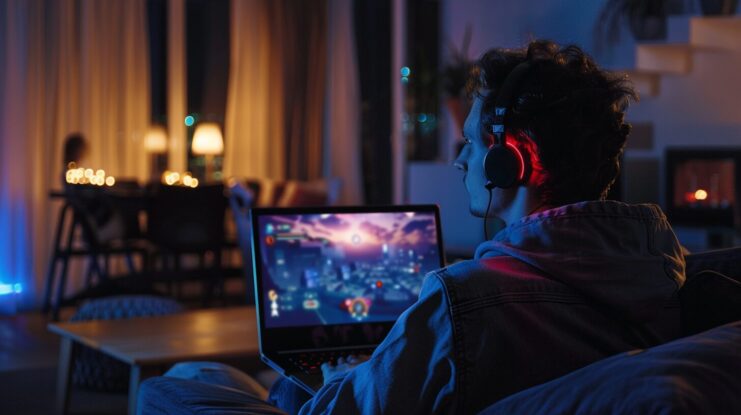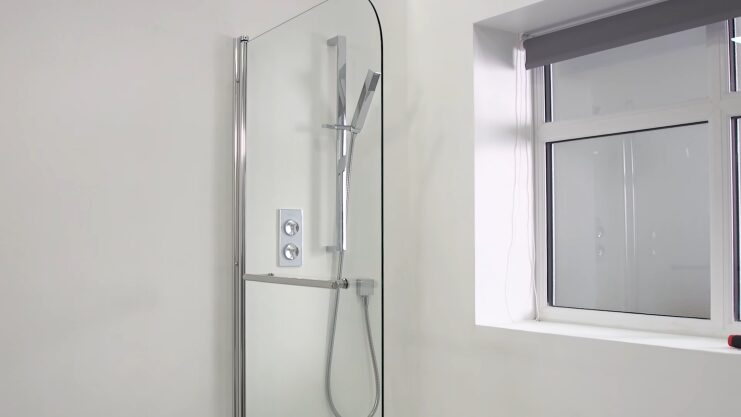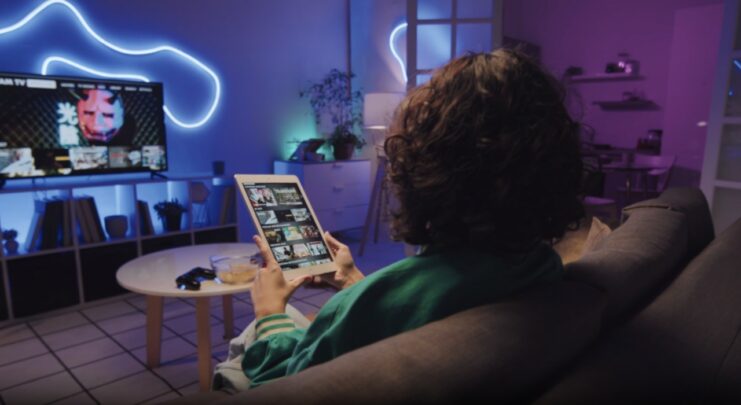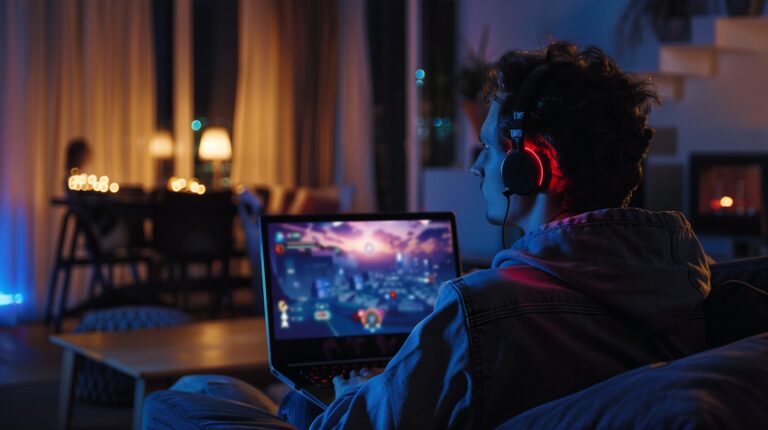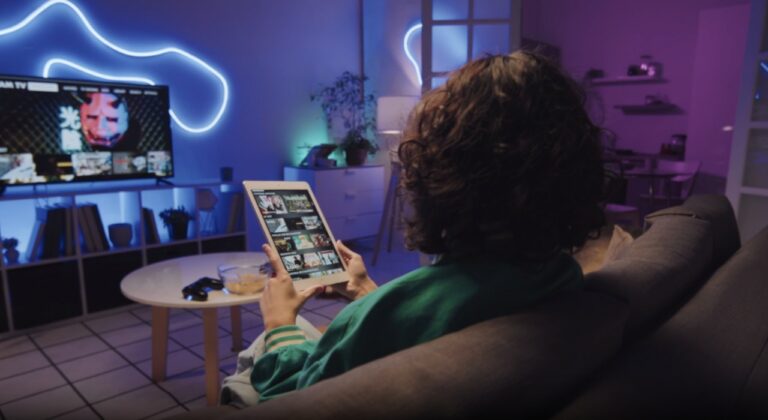Corneal ulcers are painful open sores that develop on the cornea, the clear, protective outer layer of the eye. These ulcers can be particularly problematic for contact lens wearers, as improper lens care can increase the risk of infection.
Throughout this article, we will explore the primary causes of corneal ulcers and provide essential tips on maintaining contact lens hygiene. By ensuring proper care and handling of our contacts, we can significantly reduce the risk of these eye complications.
Let’s get started!
The Underlying Causes
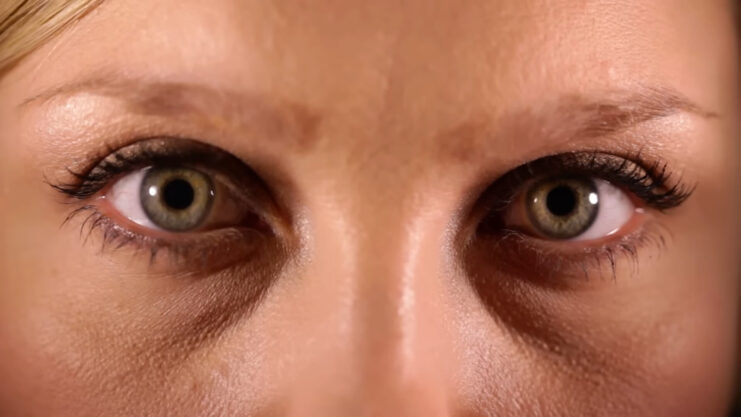
Most corneal ulcers are a result of infections, with bacterial infections being the most common culprits. Notably, individuals who wear contact lenses are at a heightened risk of developing these bacterial-induced ulcers.
Recognizing the Symptoms
Corneal ulcers manifest in various ways, including:
- Redness in the eye
- Intense pain
- The sensation of a foreign body in the eye
- Excessive tearing
- Pus or thick discharge
- Blurred vision
- Photophobia (sensitivity to bright lights)
- Swollen eyelids
- In severe cases, a visible white spot on the cornea
The Potential Dangers of Corneal Ulcers
Corneal ulcers are not to be taken lightly. They are medical emergencies that demand immediate attention.
Rapid Progression to Blindness
The severity of corneal ulcers is such that they can lead to blindness in a shockingly short span – sometimes in as little as 24 hours. This rapid progression underscores the importance of early detection and treatment.
Prevention is Better than Cure
The best way to combat corneal ulcers is through prevention. By adopting and maintaining good contact lens habits, one can significantly reduce the risk of developing these ulcers.
Golden Rules for Users
Contact lenses, while convenient, come with their own set of responsibilities. Here are some essential tips to ensure your eyes remain healthy:
Usage Guidelines
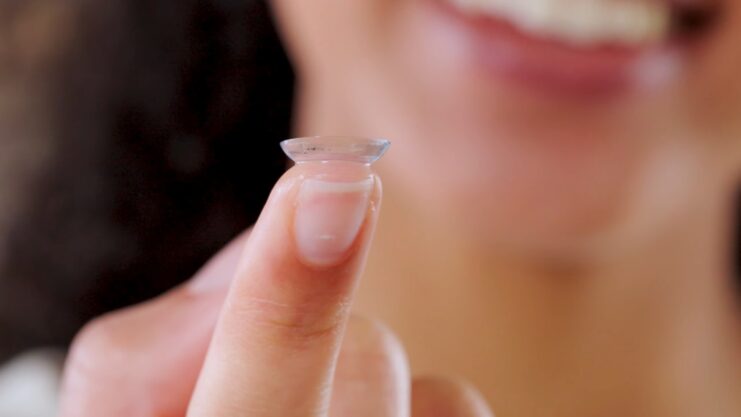
- Limit contact lens wear to a maximum of 8 hours daily.
- Avoid sleeping or even napping with your lenses on.
- Swimming with lenses is a strict no-no.
- Always ensure your lenses haven’t expired.
- At the first sign of any symptoms mentioned above, remove your lenses immediately.
- Refrain from using eye drops to alleviate symptoms. Instead, consult a doctor without delay.
Caring for Your Lenses
- Begin with thoroughly washed hands. Opt for mild or hypo-allergenic soaps, and always rinse with clean water. Use a lint-free towel for drying.
- Develop a habit of starting with the right lens first to prevent mix-ups.
- Stick to the contact solutions recommended by your optometrist. Consistency is key.
- Regularly attend contact check-ups as advised.
- Clean, rinse, and disinfect your lenses after each use. For non-disposable lenses, a weekly enzyme cleaning is beneficial.
- Always keep a pair of prescription glasses handy for those times when your eyes need a break from lenses.
- Opt for water-soluble makeup and use it sparingly. Hypo-allergenic, water-soluble cosmetics are a safer choice.
- Clean your lens storage container daily with tap water or saline.
The Connection Between Hygiene and Eye Health
Maintaining impeccable hygiene is the cornerstone of preventing corneal ulcers and ensuring overall eye health. The eyes are sensitive organs, and even minor lapses in cleanliness can have significant repercussions.
The Role of Bacteria
Our environment is teeming with bacteria, some harmless and others not so much. When we touch our eyes or handle our contact lenses without washing our hands, we risk transferring harmful bacteria directly to our eyes. This can lead to infections, including the dreaded corneal ulcers.
The Importance of a Clean Environment
It’s not just personal hygiene that matters. The environment in which you store and handle your contact plays a pivotal role in eye health. Ensure that your lens storage case is kept in a clean, dry place, away from potential contaminants.
The Science Behind Corneal Healing
The human body is a marvel, and its ability to heal itself is nothing short of miraculous. The cornea, despite its vulnerability to ulcers, has a robust healing mechanism in place.
Natural Repair Mechanisms
When minor injuries or scratches occur on the cornea, the eye’s natural repair mechanisms kick in. The cells of the cornea slide over the injured area and fill in the gap, facilitating healing. This process is usually rapid, and often completed within a few days.
Medical Interventions
In cases of corneal ulcers, the natural healing process might need a helping hand. Medical treatments, including antibiotics or antifungal eye drops, can assist in combating the underlying infection. In severe cases, surgical interventions might be necessary.
The Future of Contact Lens Technology
As technology advances, so does the world of optometry. The future holds promise for contact lens wearers, with innovations aimed at enhancing comfort and safety.
Smart Lenses
The concept of smart lenses is gaining traction. These are designed to monitor glucose levels, detect eye diseases early, and even offer augmented reality experiences. As these become mainstream, adherence to safety protocols will be even more crucial.
Biocompatible Materials
Research is underway to develop contact from materials that are highly biocompatible. These aim to reduce the risk of infections and offer extended wear times without compromising on eye health.
Frequently Asked Questions
Can I wear contact lenses if I have dry eyes?
Yes, but you should opt for lenses specifically designed for dry eyes. Additionally, using lubricating eye drops recommended by your optometrist can help alleviate dryness.
How often should I replace my contact lens case?
It’s advisable to replace your contact lens case every three months to reduce the risk of contamination.
Are colored contact lenses safe?
Yes, colored contact lenses are safe as long as they are prescribed by an optometrist and are not purchased from unverified sources. Always ensure they fit well and are cared for properly.
Can children wear contact?
Yes, children can wear contact lenses, and they are often prescribed for specific conditions or for sports activities. However, it’s essential to ensure that the child understands the responsibility of lens care.
Is it safe to buy online?
While buying contact lenses online can be convenient, it’s crucial to purchase from reputable sources and ensure the lenses match the prescription provided by your optometrist.
Final Words
Taking care of our eyes is a responsibility we all share, especially if we opt for the convenience of contact lenses. By understanding the risks, such as corneal ulcers, and practicing good lens hygiene, we can enjoy clear vision without compromising our eye health.
Stay informed, stay safe, and always prioritize your eye health.
Related Posts:
- Eye Cataract: Top Tips for Crystal Clear Vision
- Importance of STD/STI Screening for Women: Taking…
- Does Masturbation Decrease Height - Healthy Habits…
- HIV and Hep C Coinfection Window Period: The Key to Managing
- HIV – Understanding the Window Period: The Critical…
- Trichomoniasis: Diagnosis and Treatment Options for…

